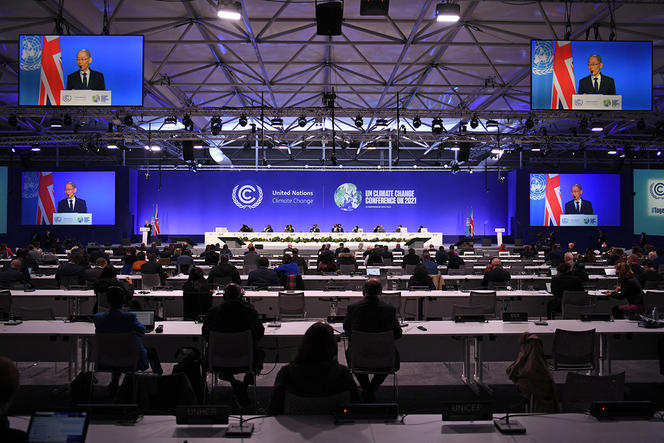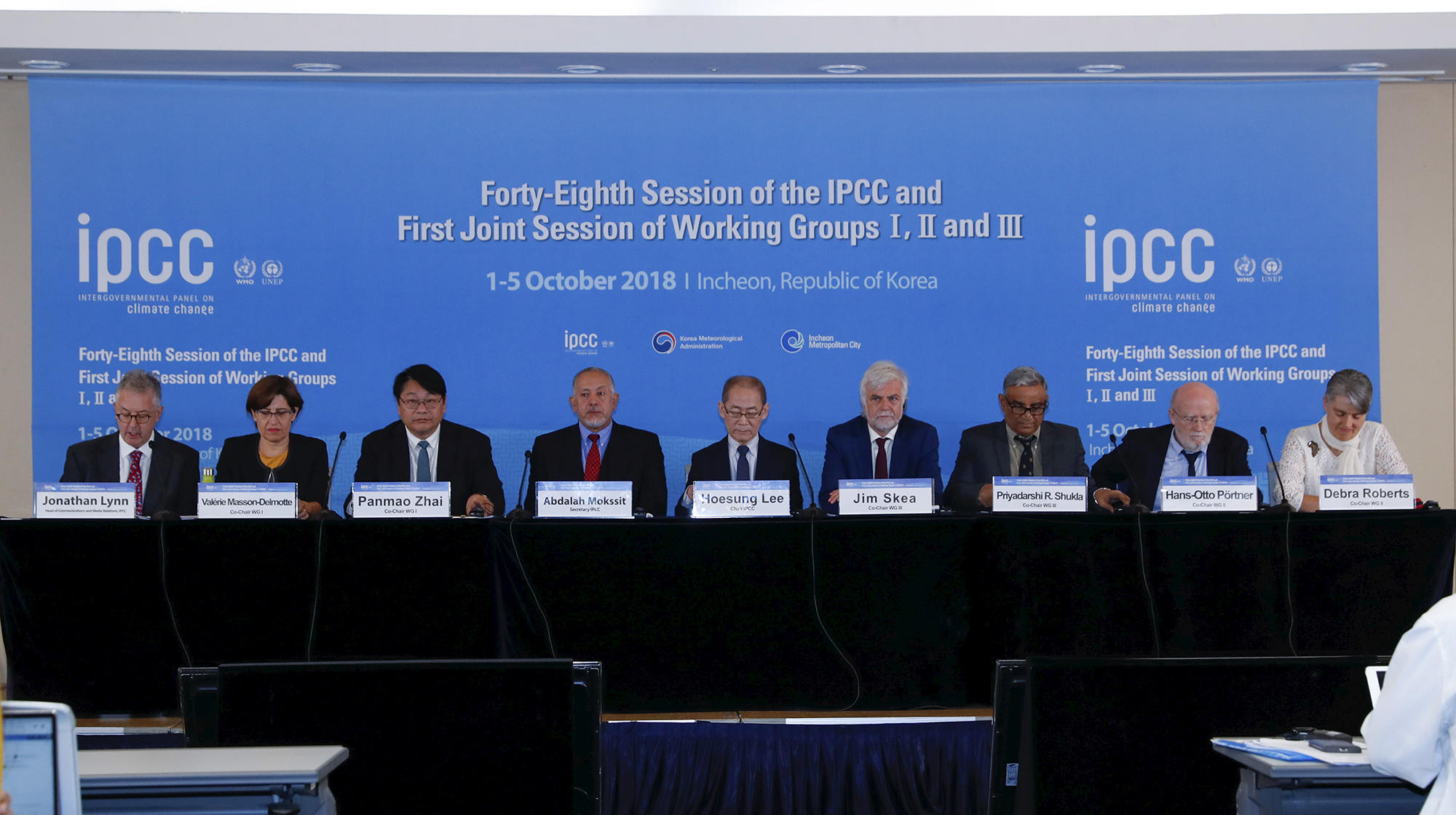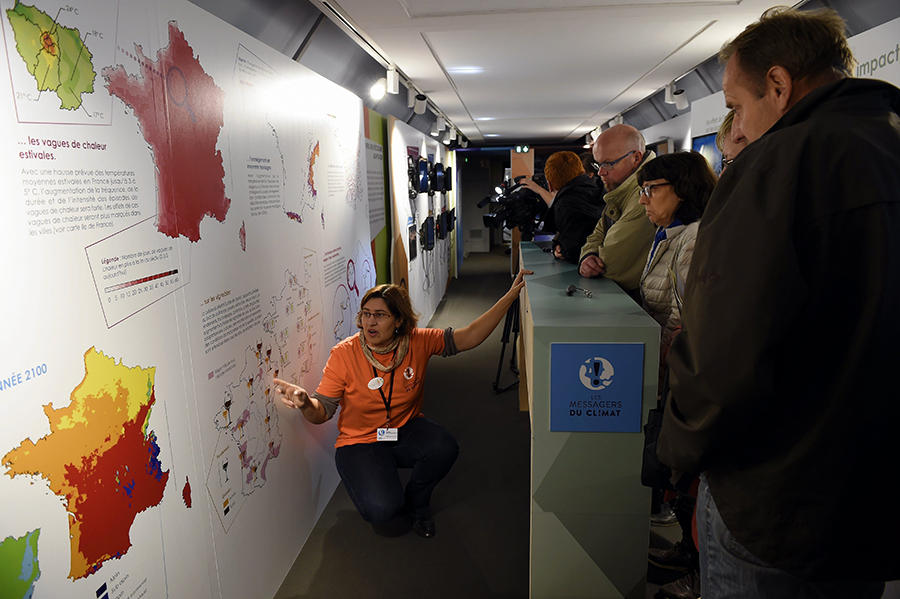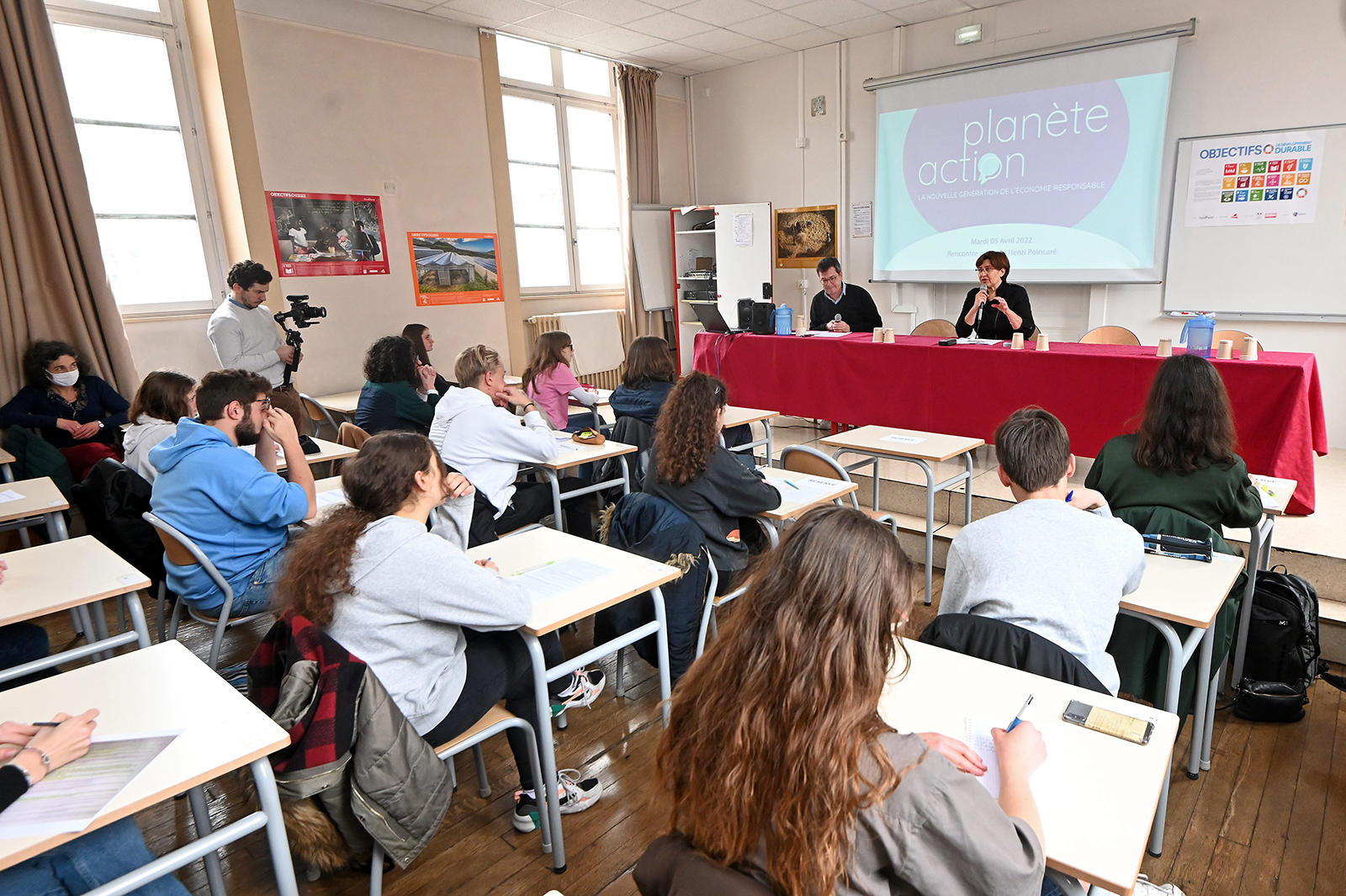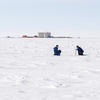You are here
Climate-related risks are still denied
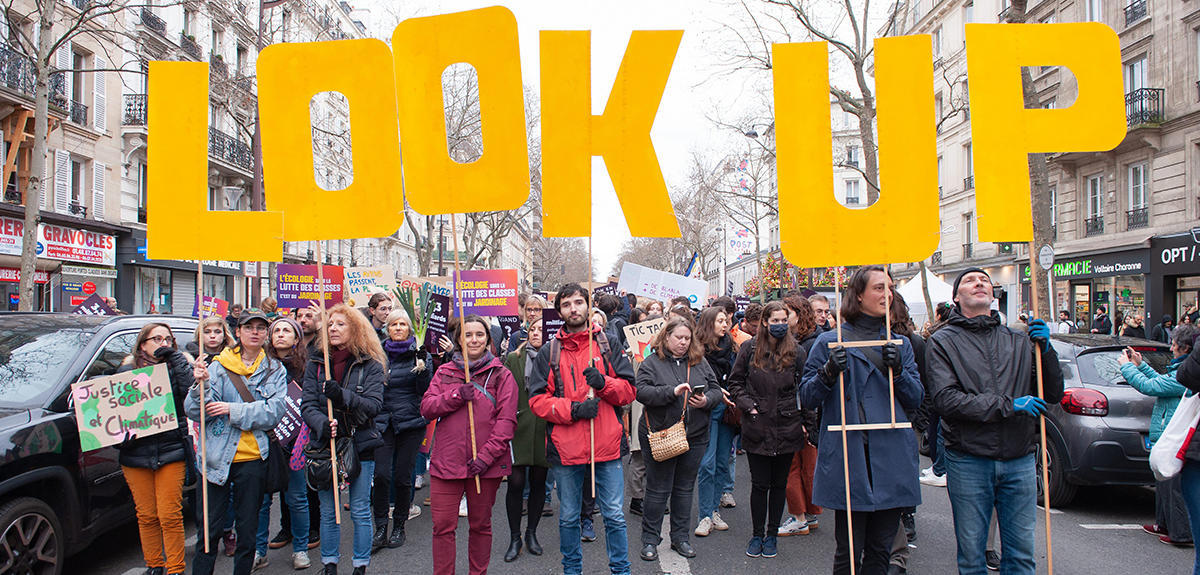
Ever since the IPCC (Intergovernmental Panel on Climate Change) was set up in 1988, it has repeatedly issued warnings and assessments of the various options, and yet the measures implemented in response always seem to fall short of what's required. Does this mean that the working group of experts and the politicians just aren't listening to one another?
Valérie Masson-Delmotte:1 First of all, I would like to point out that the IPCC's role is to provide a robust scientific basis recognised by every country in the world. To do this, it carries out an objective and thorough assessment of the state of knowledge and the various options for action, based on an examination of factual evidence drawn from tens of thousands of scientific, technical and socio-economic papers.
Its reports are not intended to be exhaustive, but rather an assessment of available intelligence aimed at informing policy choices in a neutral and non-prescriptive manner. This makes it possible to separate the IPCC's scientific findings from the international political negotiations conducted under the United Nations Framework Convention on Climate Change (UNFCCC).
The social dimension should also be emphasised. Vulnerabilities, equity, climate justice, just transition, and so on, are all taken into account in the IPCC assessments. Take, for example, the 2018 special report on the impacts of global warming of 1.5°C. It highlighted the way in which every additional or avoided degree of temperature matters in terms of climate-related risks. It showed how every year counts in reducing greenhouse gas (GHG) emissions, and that each choice plays a role in building pathways to a resilient, low-carbon economy that are ethical, equitable, fair, and perceived as fair.
The special report was explicit, for example, about the fact that redistributing carbon tax revenues to the lowest-income households forms part of the search for a balance between encouraging lower-carbon choices and taking into account its redistributive effects. The ‘Yellow Vests’ crisis in France showed how important it is to take this social dimension into account.
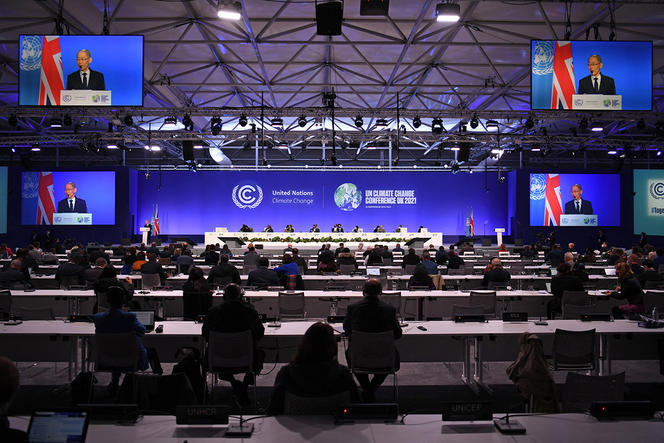
As Co-Chair of Working Group I, what do you retain from the third and final part of the latest IPCC Assessment Report, published on Monday, 4 April?
V.M.-D.: This recent report shows that climate action is gaining momentum in public policies. Some twenty countries have already passed their peak and brought about a sustainable decline in their greenhouse gas (GHG) emissions, which have nonetheless hit record levels at the global level over the past ten years. The document also shows that the costs of batteries and solar and wind power generation have fallen sharply in the past decade. It highlights that there are many options, whose feasibility has been demonstrated, for reducing global GHG emissions by half or even more by 2030, in every sector (energy, cities, buildings, industry, transport, agriculture, forestry and land use), and also by acting on demand. It underlines the potential of public policies and infrastructure to promote the adoption of low-carbon lifestyles, with a wide range of well-being and health benefits.
Nevertheless, the public policies in existence in 2020 place us on a trajectory of further emissions growth over the next ten years. As a result, unless decisive, urgent action is taken, this would lead to global warming exceeding 1.5 °C in the coming decades, 2 °C by 2050, and as much as 3 °C (2.2 °C to 3.5 °C) by the end of the century. Under the Paris Climate Agreement, however, all signatory countries committed themselves to limiting warming to well below 2 °C, with a target of 1.5 °C. This was reaffirmed at COP26 in 2021.
On this occasion, the commitments of individual states concerning the evolution of their GHG emissions by 2025 or 2030 were updated and, if implemented, could lead to a small reduction.
However, they remain insufficient in relation to the rate needed to meet the targets (a decrease of around 27% from 2019 to 2030 to keep warming below 2°C, and of 43% to limit it to a level close to 1.5°C). The problem is that any infrastructure implemented can either help reduce carbon emissions quickly, or on the contrary, because of its inertia, lock in GHG emissions for decades (a lifespan of twenty years for a combustion-engine vehicle, decades for a thermal power plant, etc.). CO2 emissions from existing and planned infrastructure alone are likely to exceed the residual carbon budget required to limit warming to 1.5°C!
Finally, this third section shows that, from a purely economic point of view, it is much more profitable to act quickly. The amount of investment necessary represents only a tiny fraction of the annual GDP (around 0.15%) from now until 2050. A critical issue is therefore the redirection of available capital towards these investments, through coordinated public policies, including technological innovation. Taking into account the full benefits of climate action, in terms of well-being, health, employment and just transitions, can act as a catalyst for the acceleration needed to stabilise global warming, avoid exacerbating vulnerabilities, preserve biodiversity and ensure the conditions for sustainable development in a liveable world.
Why do you think politicians take so little notice of the IPCC's successive reports?
V.M.-D.: If these reports were read only by scientists they would be purely restricted to the consolidation of scientific knowledge, and therefore of limited use. However, I've observed that they are an increasing resource for teaching, for initial and continuing education, and for training aimed at decision-makers, elected representatives, public administration and businesses. Many citizens and professional organisations are also making use of them, producing adaptations and summaries aimed at specific audiences, such as urban decision-makers, actuaries, and teachers.
In 2021, specific courses began to be taught as part of the common core curriculum for publicly-funded schools. The need to increase understanding of climate change is critical for evidence-based decision-making, and to enable effective implementation of national climate action strategies (low-carbon schemes, national adaptation plans) and their application to all public policies, across different ministries and sectors, and at all levels of decision-making.

What is your assessment of the importance given to climate change in France's presidential campaign so far, at a time when Russia's invasion of Ukraine at the end of February has led to a crisis in oil and gas prices?
V.M.-D.: I'm struck by the lack of clear submissions by the various candidates about the drivers of action that would enable us to rapidly reduce our dependence on the producers of these fossil fuels, as well as the resulting GHG emissions, particularly by acting on demand. Take the example of transport, France's largest source of emissions. I've seen practically no proposals aimed at encouraging voluntary carpooling and remote working, reducing speed limits on motorways, or, with the objective of just transitions, providing significant support to help artisans and small businesses, as well as home care workers (a difficult and stressful job), to acquire electric vehicles.
As for the purchase of gas from Russia, which finances that country’s war in Ukraine, I haven't seen much discussion on ways of massively reducing the use of this GHG in the heating of public buildings, in the tertiary sector, or in housing. And how about a large-scale training plan for the deployment of heat pumps in addition to thermal rehabilitation of buildings? On the other hand, there are still a number of divisive debates about this or that option for producing low-carbon electricity: for or against nuclear power, for or against solar power, for or against wind power, and so on. In France, electricity, which is essentially nuclear, is already low-carbon, and defining the optimum strategy to continue to produce decarbonised electricity is obviously of crucial importance, while at the same time taking action on the largest source of GHG emissions in the country, namely transport.
In my opinion, these divisive approaches are part of a false debate that pits different solutions against one another, rather than think about how best to combine them, in addition to sobriety. Such arguments mask the importance of reducing the use of fossil fuels as quickly as possible in every sector. I've also observed that there is little discussion about proposals for health-related public policies, even though there are multiple cross-cutting issues at the health-climate interface, such as healthy and sustainable diets, active mobility, improvement of air quality, and so on.
How do you view the media’s handling of the IPCC reports?
V.M.-D.: Media coverage of the state of scientific knowledge regarding climate change often clashes with other news. When the first part of the report was published in August 2021, it was the arrival of a new football player in the Paris team that made the headlines. And the invasion of Ukraine eclipsed the publication last February of the second part, which focused on the issues associated with vulnerabilities, impacts and risks, and ways of adapting to climate change. This topic was also one of the least discussed in the public debates leading up to the presidential election, even though it also addresses the question of taking anticipatory action to prevent risks, while stressing the need for solidarity to help the most vulnerable cope with ever-increasing losses and damage.
When covering the reports of IPCC Working Groups II and III, many media chose to focus on risks and urgency. Solutions, drivers of action, the challenges of developing just transitions and resilient development trajectories, their benefits in terms of well-being, the complementarities of technological and nature-based solutions, and the question of the enabling actions required to facilitate low-carbon lifestyles have received little attention, whereas in my view these are the most innovative features in the IPCC reports since 2018. Similarly, concerning the issue of food security, which is impacted by the consequences of climate change and other crises such as the pandemic and the war in Ukraine, the media could place greater emphasis on the various means of action required to build a sustainable food system, the complex issues surrounding agrofuels, and the possible initiatives relating to the choice of a healthier, more sustainable and more plant-based diet. The IPCC reports are a fantastic source of scientific, technical and socio-economic information about the possibilities of establishing a sustainable development that is resilient to different crises, and moving towards carbon neutrality.
Do you think that there are still as many climate sceptics today as there were 35 years ago when the IPCC was first set up?
V.M.-D.: Today, there is still a refusal to acknowledge how serious climate change is, and how urgent it is to take action. This sometimes takes the form of virulent accusations. I experienced this first-hand in a recent forum that questioned the scientific nature of the IPCC reports and my own scientific rigour. Yet each report is the result of the work of hundreds of scientists (who do it for free) and thousands of voluntary reviewers in the scientific community, who examine the factual evidence drawn from scientific, technical, and socio-economic journals, on which every finding and its associated level of confidence are based in a traceable and transparent manner. I don't think there are many scientific documents that are as thoroughly reviewed as the IPCC reports.
To put this in perspective, the report by Working Group I, published at the end of 2021 and of which I am Co-Chair with my Chinese colleague Panmao Zhai, is based on the assessment of 14,000 scientific papers, amounting to some 3,000 pages written by 234 authors and 600 contributors, and has received more than 80,000 comments by 1,890 reviewers.
At some point, it would be useful if jurisprudence could put an end to slander over the scientific rigour of the IPCC reports. I also note that personal attacks often target women who speak out on the climate, such as Greta Thunberg, who must annoy those who have a certain patriarchal view of the role of women in society.
A recent German study shows that climate sceptics often share common characteristics, such as a far-right ideology, a male gender, and difficulty in dealing with unpleasant emotions related to a sense of personal responsibility or guilt, or to the loss of certain privileges.
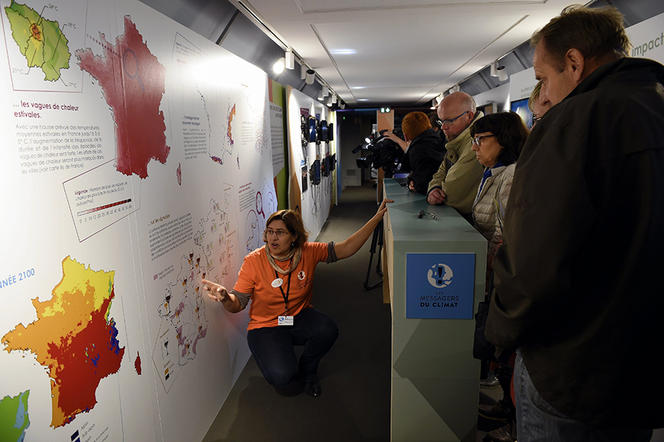
Admittedly, opinion polls as well as the public discussions I take part in show that most people have now understood that the climate is changing as a result of human activities. However, many have not yet realised that these activities are responsible for the entire rise in the Earth's average surface temperature, which has increased by 1.1 °C since 1850. I've often observed this when talking to elected representatives and decision-makers. Sometimes I even get answers like: ‘If I tell you that only 20% of the increase is due to human activity, will you take me for a would-be Donald Trump?’
Another enduring belief is that we are invulnerable. Many still believe that humans will ‘make do’, just as they have always adapted to natural hazards. However, there are a number of limits to our capacity to adapt. The IPCC's Working Group II shows very clearly that more than 3 billion people are extremely vulnerable to climate change, with livelihoods such as farming and fishing that are highly climate-sensitive, and have very limited resources.
The speed of climate change over land and its multiple impacts in the oceans, combined with local pressures, is causing increasing degradation of numerous marine, coastal and terrestrial ecosystems. Yet many policy-makers have practically no understanding of the way in which our societies are closely dependent on the health of ecosystems.
In the course of my public appearances, I have also repeatedly noticed arguments that justify inaction, a new and insidious form of denial. For instance, we often hear that ‘France only accounts for 1% of global emissions’. However, this figure takes into account neither cumulative CO2 emissions since the industrial revolution (which is the biggest factor in global warming), nor imports (which are well above the world average), nor the capacity for action of a country that is the world's seventh-largest economy.
As for the argument of France's nuclear power and low-carbon electricity, this often serves as a pretext for doing nothing in other sectors such as transport, buildings, the food system, and so on. It should not be forgotten that France's nuclear power plants were developed in the 1970s as a result of the oil crises and not out of any specific attempt to act for the climate, and also that the average carbon footprint of a French person, taking into account imports, is close to the European average and well above world levels. You also hear arguments that shift the responsibility onto consumers: ‘It's not our fault if people choose SUVs…’ As if the marketing campaigns and profitability strategies of car manufacturers didn't help shape trends in demand! Among other pretexts for inaction, I was also told: ‘In my company, we've got rid of plastic coffee stirrers, so we've done our bit!’, and ‘I trust technological progress. In a few years, a new solution will be available, so why bother to make an effort now?’, a pretext to make no changes to lifestyles that frequently produce very high GHG emissions. And the worst of all: ‘Everything's OK, since children learn about climate change at school. That way they'll have all the skills needed to take action,’ shifting the mental burden of climate action to the younger generations, rather act responsibly now.
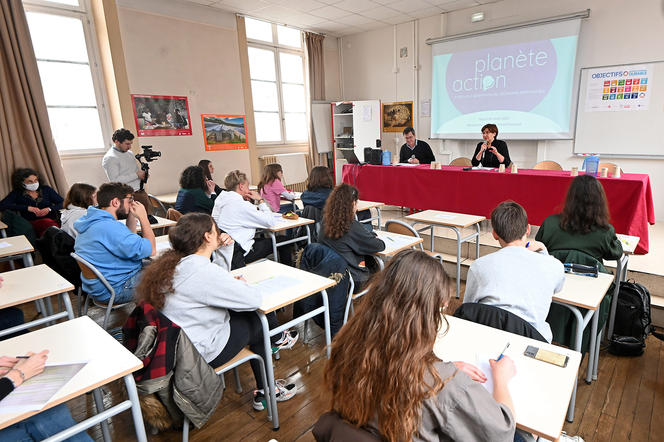
Despite this, have you observed a positive change in mentalities, particularly in young people?
V.M.-D.: Absolutely. A culture of ecological transition is clearly emerging, taking many forms in civil society, especially among young people. They want to learn and acquire skills, do meaningful jobs, and they demand commitment from companies and institutions. The Labos 1point5 initiative,2 launched by young French scientists and now a research network (GDR), is a blatant example. There has also been an upsurge in precedent-setting legal actions. The diversity of actors and approaches, including business coalitions, local, regional and city authorities, citizens' initiatives, and indigenous peoples, is highlighted in the IPCC reports. The involvement of civil society is indeed crucial to overcoming obstacles arising from vested interests, denial, habits, and the limitations of existing institutions, and to encouraging more ambitious action by political leaders.
In your view, should the IPCC review some of the ways in which it works?
V.M.-D.: We do so when necessary. For instance, with the help of specialists, we have been working on implementing inclusive and participatory practices to enable everyone to contribute as best they can, taking into account unconscious bias and cultural differences. Some scientists, for example, find it hard to feel legitimate and fully participate in the preparation of the reports – so called ‘impostor syndrome’. Helping them overcome this helps ensure that the assessment is as rigorous, objective and comprehensive as possible, and that it draws on the commitment, skills and expertise of all the authors.
We have also increased the transparency of our assessment, using an open data approach and applying the FAIR guiding principles (Findable, Accessible, Interoperable, Reusable), as well as an Interactive Atlas. But there is still a lot of work to be done. For example, tools could help automate the analysis of scientific literature. And it has already been decided that the next assessment cycle, starting in 2023, will include a special report on cities and climate change.



How can you better engage with the general public, who don't always have the necessary resources to understand and be convinced by your conclusions?
V.M.-D.: Within the IPCC itself there are now several people whose job it is to provide their expertise in communication, and also many scientists, authors of the reports, who are highly involved in knowledge sharing. But this is still not enough. The reports are technical, long, and difficult to read. We have produced summaries for each region, and we are going to do the same for different sectors of activity, with documents that do not exceed a few pages, are accessible, and user-friendly. Other contributors have produced adaptations of IPCC reports for urban decision-makers, classroom resources for teachers, and summaries for citizens. A summary for actuaries is also being co-produced. It is more important than ever to provide more guidance for non-scientific decision-makers and journalists so that the IPCC's messages are better understood and disseminated to the general public.
And the social networks are an essential way of reaching certain audiences. How do you share the key points of the IPCC reports on YouTube, Instagram or Tik-Tok? This requires the expertise of a new generation of scientific mediators, something that an institution like the IPCC lacks. I do my best to communicate on Twitter – which is extremely time-consuming! – and I take a real interest in the feedback and exchanges. In fact, when I reacted to the film ‘Don't Look Up’ from my female climate scientist's perspective, the thread on Twitter was viewed more often in a few days than the one I dedicated to the summary of the Working Group I report last summer!
This goes to show how powerful a platform like Netflix can be. It also raises the question of the interfaces between science and artistic creation, and the importance of better intertwining popular culture and knowledge related to climate change and climate action, enabling us to envision a successful transition for the climate, for biodiversity, and for all of us.
- 1. Valérie Masson-Delmotte is a climatologist at the Laboratoire des Sciences du Climat et de l'Environnement (LSCE – CNRS / Université Versailles Saint-Quentin-en-Yvelines / CEA), at Université Paris-Saclay, and is Co-Chair of the IPCC Working Group I on the physical science underpinning climate change, for its 6th assessment cycle (2015-2023).
- 2. The project, which was initiated by the scientific community, will enable the development of reference tools to measure the carbon footprint of academic research and to act in a manner consistent with France's climate commitments.


